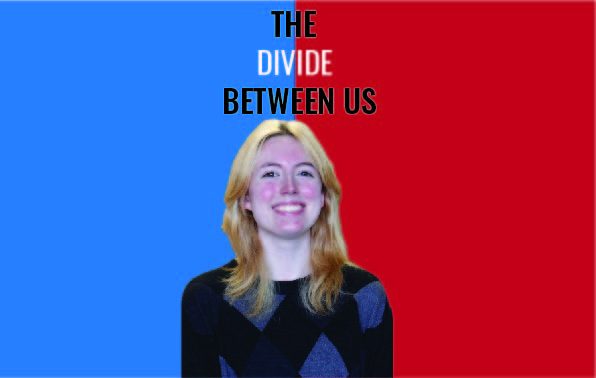Opinion: Solving the political divide requires open conversation
Promoting open conversation between the political parties will open up future opportunities to improve our political climate

March 5, 2022
Over the past several years, the political gap has become larger and larger. This has led to the further polarization of the parties and less willingness to agree with those from opposite political standpoints which has had a negative effect on politics as well as social issues today.
This political dissonance, as well as its effects, has become so large that the effects can even be seen within our society, in media and even our own school population.
Over the years, party politics have been brought to the forefront of many important discussions and have become highly impactful when it comes to people’s ideas on those issues.
Social media has made this impact even greater. In fact, according to the Institute of Politics at Harvard Kennedy School, young Americans are more likely to be involved in politics than in the past decade.
Party politics have also become a larger part in how people make their political decisions. People now focus on making their decisions based on their personal beliefs, people are the thoughts of their political party. This has led to more closed mindedness from the parties when it comes to agreeing with the views of those on the other side of the political spectrum.
This issue can be seen within our own school by observing political conversations. Many people within the school hold strong opinions about what they believe, however not much discourse can be observed throughout the school. The polarization can even be seen through the introduction of the Young Democrats and Young Republicans clubs.
These clubs more strongly enforce whatever political standpoints the club members have. Neither of these clubs are made to help the students within them understand standpoints of the other but rather create spaces for people who already agree with each other.
The refusal to get to know the arguments that the opposing party is making can also lead people to have a false sense of what the average people of that party represent and support. Because of the polarization of the media, many people have a specific idea of the views and thought processes of the opposition. However, people fail to realize that the representation of the political parties is monstrously over-exaggerated. In fact, if more conversation were sparked by students, many of them would probably realize just how much they can agree on certain issues.
This has also caused more animosity to grow between the parties. The result of this being a further lack of discussion because of unwillingness to listen to the ideas of others. This will then hinder people’s ability to simply interact with those who have ideas that oppose their own.
The key way to counteract the spread of false ideas about the positions of people based on political parties is to promote conversations about topics. By doing this, we might be able to make more progression toward a better future where important topics can be properly handled. This would also help create an environment where people can feel free to voice their views and partake in political discussion freely.









